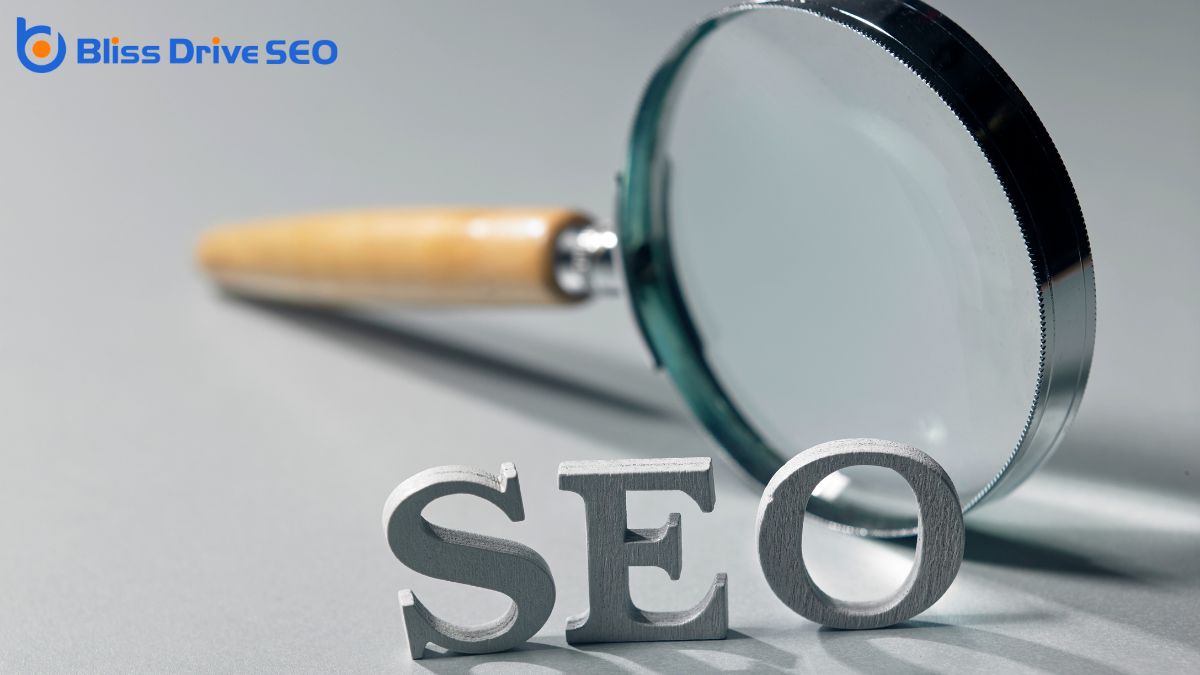Digital Marketing Services
Learn More About Us

When you're considering basic SEO for your business, understanding the cost can be a bit tricky. You might find yourself wondering why prices range from $500 to $2,000 per month and what exactly you're paying for. Factors like industry competitiveness and website complexity play a role, but how do you decide what's worth your investment? Also, are there any budget-friendly options that don't compromise on quality? It's essential to know what typical services are included in these packages and whether hiring a professional is worth it. So, how do you navigate this complex pricing landscape?
When diving into the world of SEO, grasping how pricing models operate is crucial. You're likely to encounter a few common structures: hourly rates, monthly retainers, and project-based fees. Each model has its merits and can cater to different needs and budgets. By understanding these options, you can make informed decisions about which one aligns best with your goals.
Hourly rates are straightforward. You pay for the precise amount of work done, which is often ideal if you need specific tasks completed. This approach is flexible, but costs can accumulate if the project requires extensive work.
Monthly retainers, on the other hand, offerThe specific product or service being promoted by affiliates. continuity. You pay a set fee each month, ensuring ongoing optimization and strategy development. This model is perfect for long-term growth but necessitates a steady budget.
Project-based fees are suitable for defined objectives, such as a website overhaul or launching a new campaignA set of ad groups sharing a budget, targeting options, and other settings.. You pay a fixed price to complete the project. This model provides predictability in costs but might lack the adaptability of the other approaches.

Now that you're familiar with the various SEO pricing models, it's important to understand what drives these costs. Several key factors influence how much you might pay for basic SEO services.
First, consider the size and complexity of your website. A larger site with numerous pages requires more optimization work compared to a smaller one, directly impacting costs.
Next, think about the competitiveness of your industry. Highly competitive sectors often demand more effort and resources to achieve desired rankingsThe position at which a website appears in the SERP., thereby increasing the price.
Your current SEO standing also plays a role. If your site needs a lot of improvements, like fixing errors or enhancing content, expect higher costs.
Geographic targeting can affect SEO pricing too. Targeting a local audience may be less expensive than a national or international one, as the scope of work is narrower.
Additionally, the expertise and reputation of the SEO provider you're considering will influence costs. Established agencies with a proven track record often charge more due to their experience and success rates.
Lastly, remember that SEO is an ongoing process. The level of maintenance and updates required to keep your site optimized will also determine the overall expense. Understanding these factors helps you make informed decisions about your SEO investment.
What can you anticipate from basic SEO packages? Typically, they include a variety of essential services designed to enhance your website's visibility on search engines. At the core, you'll find keyword researchThe process of finding and analyzing search terms that people enter into search engines., which helps identify the terms your potential customers are using. This research guides your content strategyA plan for creating, publishing, and managing content to meet business goals., ensuring you're reaching the right audience.
You'll also receive on-page optimizationImproving individual webpages to rank higher and earn more relevant traffic in search engines.. This involves updating your website's elements like title tags, meta descriptions, and headers to align with targeted keywordsWords or phrases that users type into search engines to find information., making your site more search engine-friendly.
Basic SEO often includes a technical audit, too. This audit checks for issues like broken links, slow load times, or poor mobile responsiveness, all of which can impact your site's performance.
Content creation or optimization might also be part of the package. It focuses on producing high-quality, relevant content that answers users' queries, consequently boosting your site's authority. Additionally, basic link-building efforts could be included, helping establish your site's credibility through backlinksLinks from other websites pointing to your website, crucial for SEO..
Lastly, expect regular reporting. It keeps you informed about your site's progress, showing changes in rankings and traffic. These typical services form the backbone of an effective SEO strategy, laying the groundwork for future growth.
When you're managing a small business, understanding the typical monthly budget range for SEO is essential.
You'll find affordable SEO service options that can fit within your financial plan while still improving your online presence.
For small businesses looking to establish a solid online presence, setting a reasonable budget for SEO is essential. You might wonder how much you should allocate monthly to get your website noticed in search results. Typically, small businesses can expect to spend between $500 and $2,000 per month on basic SEO services. This range depends on several factors, including your industry, competition, and the specific goals you're aiming to achieve.
When you consider where you fall in this range, think about your business's specific needs. Are you looking to target a local audience or a broader market? Local SEOOptimization strategies aimed at improving a website’s visibility in local search results. might cost less, while broader strategies could push your budget higher.
Also, keep in mind that SEO is an ongoing process, not a one-time fix. Allocating a consistent budget helps maintain and improve your search engine rankings over time.
Finding cost-effective SEO service options can be critical for small businesses working hard to maximize their online presence without breaking the bank. You're likely aware of the importance of SEO, but the costs can be intimidating. Thankfully, there are affordable options designed specifically for small businesses.
Many SEO agencies offer packages starting around $500 to $1,000 per month. These usually include essential services like keyword research, on-page optimization, and basic link buildingThe process of acquiring backlinks from other websites.. At this price point, you should expect a focus on local SEO, which is vital for attracting nearby customers.
Freelancers can be another affordable option. Hiring a skilled freelancer might cost you between $100 and $500 per month, depending on their experience and the services they provide. This approach allows for more personalized attention and flexibility, but make sure you check their credentials and past work.
DIY SEO toolsSoftware and online tools used for various aspects of SEO, such as keyword research and link buildin... can also help reduce costs. Several platforms offer subscription-based services for a monthly fee ranging from $50 to $200. These tools can guide you through the SEO process, helping you implement strategies without expert help. Balancing quality and cost is key, so choose the option that best fits your business needs and budget.
Implementing cost-effective SEO strategies is essential for small businesses aiming to enhance their online visibility without overspending. You don't need a massive budget to make an impact. Start by focusing on keyword research. Use free tools like Google Keyword Planner to find terms relevant to your business. Optimize your website's content with these keywords, making sure it's relevant and valuable to your audience.
Next, improve your on-page SEOOptimization techniques performed directly on the website, including content and HTML source code. by optimizing meta titles, descriptions, and headers. Make sure your website loads quickly and is mobile-friendly, as these factors greatly influence search rankings.
Don't underestimate the power of local SEO. Register your business on Google My Business and other local directories to boost your presence in local search results.
Building backlinks can be budget-friendly, too. Reach out to local businesses or partners for collaborations or guest bloggingWriting and publishing articles on other websites to reach a new audience. opportunities. These efforts can enhance your site's authority without breaking the bank.
Exploring the world of SEO doesn't have to be an expensive venture, as there are several budget-friendly options that can effectively boost your online presence.
You can start by leveraging free tools like Google's Keyword Planner to find relevant keywords that resonate with your target audience. This tool helps you discover what potential customers are searching for, allowing you to tailor your content accordingly.
Another cost-efficient approach is optimizing your existing content. Make sure your website's pages have clear titles, meta descriptions, and alt tags for images. These small changes can significantly enhance your site's visibility without incurring expenses. Additionally, ensure your website loads quickly and is mobile-friendly, as search engines prioritize these factors.
Don't overlook the power of social media. While not a direct SEO tool, sharing your content on platforms like FacebookA social networking site where users can post comments, share photographs, and links to news or othe..., TwitterA microblogging and social networking service where users post and interact with messages known as "..., or InstagramA photo and video-sharing social networking service owned by Facebook. can drive traffic to your site and indirectly improve SEO. Engaging with your audience on these channels also builds credibility and trust.
Lastly, consider joining online communities or forums related to your industry. Participating in discussions and sharing your expertise can earn backlinks to your site, further boosting your SEO efforts at little to no cost.
When considering SEO, you might weigh the cost-effectiveness of doing it yourself against the benefits of hiring a professional. DIY SEO can save money upfront, but professionals bring expertise that could enhance your site's performance.
Also, think about the time you'll need to invest if you choose the DIY route versus having experts handle it efficiently.
Exploring the choice between DIY SEO and hiring professionals can significantly impact your budget and results. If you're leaning towards DIY, you'll find that it requires time, patience, and a willingness to learn. The cost-effectiveness of DIY SEO lies in its potential to save money upfront. You won't need to pay a professional's fee, which can range from hundreds to thousands of dollars per month. Instead, you can use free or low-cost SEO tools to help optimize your website.
However, consider the hidden costs. Time is a valuable resource, and DIY SEO can be time-consuming. You'll need to stay updated with the latest SEO trends and algorithms, which can be challenging if you're juggling multiple tasks. Mistakes can also be costly, potentially leading to a drop in rankings if not addressed properly.
On the other hand, DIY SEO gives you control and flexibility. You can implement strategies at your own pace and adjust them based on your observations. It's an opportunity to learn and develop new skills, which can be rewarding if you're passionate about digital marketing. Ultimately, it's essential to weigh the time investment against potential monetary savings.
When it comes to achieving the best SEO results, hiring professionals offers distinct advantages that DIY efforts mightn't provide. While doing it yourself can seem cost-effective, professional expertise brings a deeper understanding of the complexities involved in optimizing your site. Experts stay updated with the ever-changing algorithms of search engines, ensuring your website remains competitive.
Here are three benefits of hiring SEO professionals:
Tackling SEO on your own can be a significant time investment compared to hiring professionals. When you decide to manage SEO yourself, you're not just setting aside time for keyword research. You've got to learn about on-page optimization, link-building strategies, analytics, and constantly changing algorithms. The learning curve is steep, especially if you're starting from scratch. You might spend countless hours reading blog posts, watching tutorials, and experimenting with different tactics.
On the other hand, hiring professionals can save you that precious time. SEO agencies or freelancers bring expertise and experience to the table. They've already navigated the complexities of SEO, so they know what works and what doesn't. This allows them to implement effective strategies quickly, freeing you up to focus on other aspects of your business.
They can also provide results faster since they're not spending time learning the ropes.
Ultimately, it boils down to how much time you can realistically commit. If you're short on time but have the budget, outsourcing might be the best route. However, if you're keen to learn and have the time, DIY SEO could be a rewarding challenge.

Understanding the ROI of your SEO efforts is important to make sure you're maximizing your marketing budget. When you invest in SEO, you want to see tangible results that justify your expenses. Evaluating ROI involves analyzing the benefits you gain compared to the costs you incur. Here's how you can effectively evaluate your SEO ROI:
When you're considering SEO costs, it's important to weigh the benefits against your budget. Basic SEO services typically range from $500 to $2,000 per month, depending on your needs and industry. You can find budget-friendly options through skilled freelancers or even attempt DIY strategies. Ultimately, investing in SEO can greatly boost your online visibility and search rankings, but make sure you're evaluating the ROI to make sure it's a worthwhile investment for your business.
